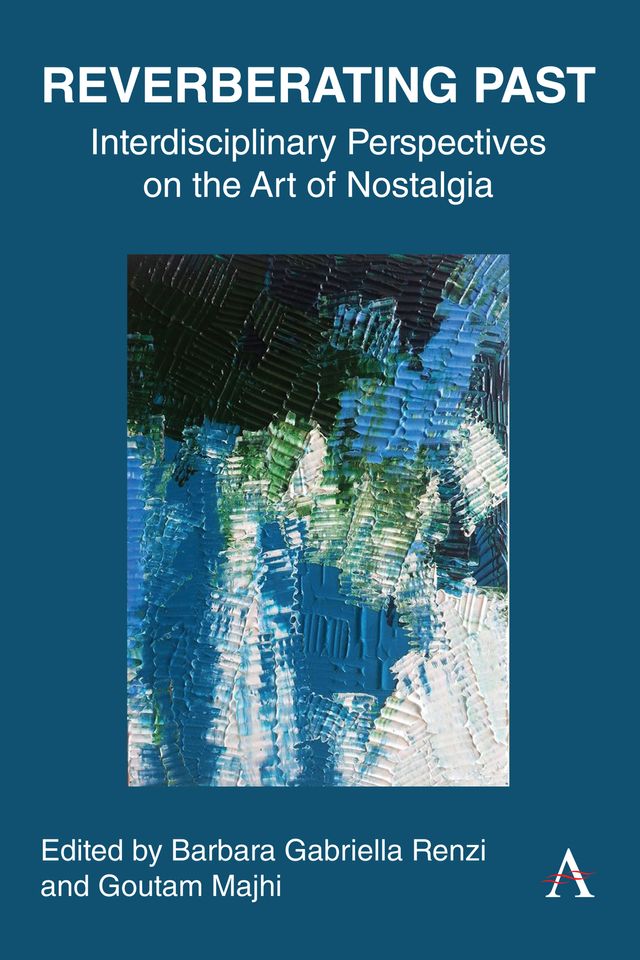Edited by Barbara Gabriella Renzi and Goutam Majhi
ISBN: 9781839996887
Pages: 200
Pub Date: September 2026
Imprint: Anthem Press
Edited by Barbara Gabriella Renzi and Goutam Majhi
ISBN: 9781839996887
Pages: 200
Pub Date: September 2026
Imprint: Anthem Press
A unique, post-pandemic-era anthology that blends creative and critical works to redefine nostalgia studies through a culturally expansive and interdisciplinary lens
The edited collection titled Reverberating Past: Interdisciplinary Perspectives on the Art of Nostalgia is an interdisciplinary anthology that bridges the artistic and academic realms, exploring the concept of nostalgia through both personal and collective lenses. The volume is divided into two parts: the first part features poetry and short stories that capture the emotional resonance of past experiences, while the second one presents scholarly articles that delve into the multifaceted nature of nostalgia across disciplines such as literature, film, history, and psychology.
The book emphasizes how contemporary artifacts, a term used in a metaphorical way, serve as vessels for nostalgic experiences, shaping our understanding of the past and its influence on the present. The preface frames nostalgia as a subtle force that transforms ordinary moments such as scents, light, and the sheen of old photographs into a living archive of identity. The introduction by Barbara Gabriella Renzi and Goutam Majhi takes Marcel Proust’s madeleine as a touchstone for involuntary memory and traces the concept back to Johannes Hofer’s seventeenth century medicalization of homesickness, while Homer’s Odysseus models a far older and existential longing for home. An opening reflection shows nostalgia working as a present tense instrument of perception that binds personal memory to collective history, and the stated purpose situates the book at the crossroads of art and scholarship, where poems, stories, and essays perform nostalgia as both aesthetic practice and emotional condition. A typology of nostalgic artifacts then distinguishes tangible carriers of memory such as recipe cards, albums, and uniforms from intangible ones such as songs, atmospheres, and absences, stressing how both kinds shift meaning across time and move between the individual and the communal.
Part I (Creative Composition) renders nostalgia in poetry and short fiction. Benedetto Ghielmi’s Torn Silences and Tears of Asphalt juxtapose silence and noise, city and forest, exposing modern alienation while still searching for empathy. Lucia Cristiana Cesarano’s Words treats language as the last refuge where love and memory endure. Immacolata Rosso’s paired poems, Stolen Sky and Gray in Ten Shades, trace a cycle from connection to solitude and back toward hope. Guido Oldani’s Once widens the lens to a planetary elegy in which ecological and human decline intertwine.
The short stories deepen this spectrum. Jean Portante’s Scents of Childhood returns to Differdange and Nonna Aquila, using smell as a Proustian bridge until the past no longer translates. Cinzia Pierantonelli’s Ostalgie and My Hidden African Malaise intertwines a father’s colonial nostalgia for Eritrea and Ethiopia with the daughter’s East Berlin experience, crystallized in a chipped cobalt cup. Samoylenko and Shramko’s A Short Random Dialogue about Nostalgia playfully interrogates the very nature of nostalgia. Gabriele Gëzim Kaci’s Uncle Killed the Cockroach stages a family’s deliberate return to ritual, embodying Frijda’s bittersweet emotion and Boym’s distinction between restorative and reflective nostalgia.
Part II (Critical Essay) shifts to analysis across cultures and media. Laureano Corces’s Cuban and Puerto Rican Nostalgias: Where Another Place is Home traces a movement from Romantic patriotic yearning to diasporic self fashioning, with theater as a collective stage of memory. Sony Jalarajan Raj and Adith K. Suresh’s Sculpting in History: Nostalgic Structures in Indian Popular Culture shows how monuments like the Taj Mahal become emotional architectures in cinema, shaping regional and national identity. Rasmus Olsson’s Fashioning the Memories reads clothing phenomenologically as a vessel of lived time. Barbara Gabriella Renzi’s Digital Twins and Nostalgia examines simulated presence and the ethics of virtual remembrance. Goutam Majhi’s Revisiting Indian Festival Culture treats festivals as evolving sites of collective memory. Renzi returns in Roots and Reverie: Italian Women’s Literature Through a Migrant’s Eyes, linking nostalgia, gender, and migration. Debojoy Chanda’s Toward an Ethics of Fiction: Recuperating the Desire for Desire in M. G. Vassanji’s Nostalgia reframes nostalgia through Lacan, Derrida, and Levinas as an ethical mnemonic practice that resists exclusionary myths of origin. Closing the volume, Marketa Lepicovsky’s Going Down Memory Lane and Back Up Again synthesizes the concrete and the abstract, combining songs, photos, and scents with identity, time, and belonging, using psychological theory and computational language tools to show how nostalgia shapes thought, behavior, and well being.
A conceptual frame holds the collection together through two metaphors: nostalgia as mirror, reflecting the self through others’ words, and nostalgia as map, offering guidance across cultural, political, and technological terrains of memory. The closing gesture invites slow, dialogic reading where the reader’s own artifacts, objects, and atmospheres complete the circuit as they resonate with the poems, stories, and essays. Throughout, the volume insists that nostalgia is not escapism but a mode of knowing that links what was to what might be, turning private remnants into shared understanding across Jean Portante, Cinzia Pierantonelli, Samoylenko and Shramko, Gabriele Gëzim Kaci, Benedetto Ghielmi, Lucia Cristiana Cesarano, Immacolata Rosso, Guido Oldani, Laureano Corces, Sony Jalarajan Raj, Adith K. Suresh, Rasmus Olsson, Barbara Gabriella Renzi, Goutam Majhi, Debojoy Chanda, and Marketa Lepicovsky.
